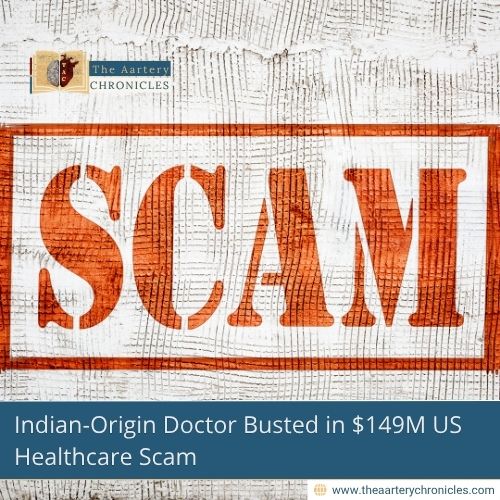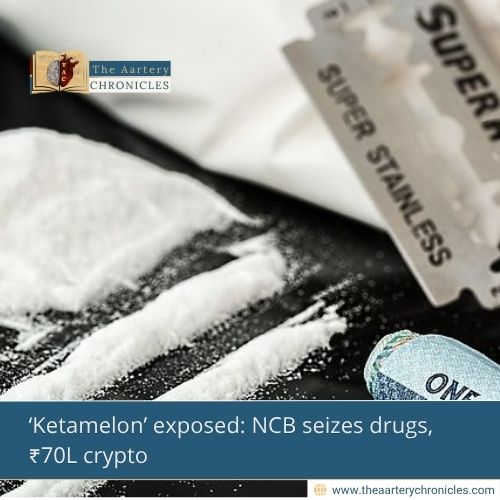

From Psychiatrist to Prime Accused: The $149M Healthcare Scam
Summary: Indian-origin psychiatrist Dr. Tanmoy Sharma, founder of Sovereign Health Group, was arrested in the US for allegedly masterminding a $149 million healthcare fraud. Once celebrated for his work in psychiatry and schizophrenia, Sharma now faces multiple federal charges, including wire fraud and illegal kickbacks. In this case, one of the largest of its kind, uncovers
- Years of deception
- Fake insurance claims
- Patient exploitation
Did you know?
Indian-origin doctor Tanmoy Sharma, once praised for his work in psychiatry, now stands accused in one of the largest healthcare frauds in US history, worth over ₹1,244 crore (US $149 million). If convicted, he could face up to 20 years in prison per count.
Let’s break down the story of how a once-renowned psychiatrist allegedly became the mastermind behind
- A giant web of lies
- Fake claims
- Illegal payouts
Caught at the Airport: Trying to Flee to Dubai
61-year-old Dr. Tanmoy Sharma, originally from Assam, was arrested on May 29 at Los Angeles International Airport.According to U.S. authorities, he was planning to escape to Dubai, but federal agents intervened just in time.
The U.S. Department of Justice revealed that a federal grand jury had indicted Sharma on eight criminal charges, including:
- Four counts of wire fraud
- One count of conspiracy to commit fraud
- Three counts of illegal patient referrals for cash
The Fraud: Fake Claims, Phantom Treatments, and Kickbacks
The Justice Department accuses Sharma of:
- Submitting over $149 million in fraudulent insurance claims
- Paying more than $21 million in illegal kickbacks to patient brokers
These brokers, disguised as “marketers,” referred patients in exchange for cash under fake “marketing hours” mentioned in invoices and contracts.
As per TV9, some patients were secretly enrolled in private insurance plans without their knowledge, just so Sovereign Health could bill insurers for treatments never delivered.
Inside the Call Center Conspiracy
A report by India Today exposes how call centre staff at Sovereign Health deceived patients by:
- Pretending a fake charity would pay for treatment
- Collecting personal data like Social Security Numbers
- Using the data to sign patients up for insurance plans they never applied for
- Falsifying income and other details to secure low-cost, high-payout private insurance
This lets Sovereign earn more than what government programs like Medicaid would offer.
Drug Tests and Lab Profits: Profiting from the Unnecessary
Another major part of the scam involved expensive and unnecessary drug tests.
Patients were forced to take both rapid and detailed lab tests, regardless of medical need. These were run through Sovereign’s in-house facility, Vedanta Laboratories Inc., to maximise profit.
Shockingly, some of these tests were billed to insurers even after the doctors who ordered them had left the company.
Rebranding to Stay Undercover: Dana Shores Recovery
Even after Sovereign Health shut down in 2018, Sharma didn’t stop.
He continued operations under a new name, Dana Shores Recovery, and used a different license to avoid detection.
Another accused, Paul Yin Sen, has also been arrested. He pleaded not guilty. His trial begins July 29.
If convicted, Sharma and Sen could face:
- Up to 20 years per count of wire fraud
- 5 years for conspiracy
- 10 years for illegal kickbacks
Who is Dr. Tanmoy Sharma? From Research Hero to Medical Fraud
Born in Guwahati, Assam, Sharma earned his MBBS from Dibrugarh Medical College in 1987, interned at Delhi’s Safdarjung Hospital, and then moved to the UK. He later shifted to the US to pursue psychiatry.
Sharma made a name internationally with:
- 200+ research papers
- 5 published books
- 14 international journal review boards
- Advisory roles on antipsychotic drug boards
His rise in the UK began in the 1990s, conducting clinical trials for top pharmaceutical companies.
The Beginning of the Fall: UK Fraud and License Revocation
Sharma’s downfall started in 2001, when Sanofi raised concerns over a £250,000 trial he led.
Their internal probe revealed:
- Fake ethics committee approvals
- Enrolling vulnerable patients without proper consent
- Offering financial incentives to lure participants
- False academic claims, including a bogus professorship
In 2007, the UK’s General Medical Council revoked his license, citing serious professional misconduct. Sharma then moved to the US, where he built Sovereign Health and, allegedly, one of the biggest healthcare scams in America.
Conclusion: A Stark Reminder of Systemic Loopholes
Dr. Tanmoy Sharma’s arrest exposes deep vulnerabilities in the U.S. healthcare system. From fake patient referrals to bogus lab tests and insurance exploitation, the scam lasted for years before authorities caught on.
Once a respected psychiatrist, Sharma now faces the very real possibility of decades behind bars.
What could be the reason behind such a scam? The person was already famous, and yet he managed to enter the US despite previous fraud allegations, while ordinary people struggle to even get a visa
Why would someone so accomplished and respected risk everything for fraud?
Let’s see how it will be predicted by a psychologist!!
Despite his fame and success, Dr. Tanmoy Sharma may have been driven by a need for more... more money, more influence, or simply the thrill of outsmarting the system.
• Narcissism or grandiosity: Successful people sometimes develop an inflated sense of invincibility — believing the rules don’t apply to them.
• Addiction to success: He may have become addicted to the next big win, even if it meant crossing ethical lines.
• Justification mindset: People in power often convince themselves that bending the rules is okay — “I help people anyway, what’s wrong in profiting more?”Shruti, IMDHA Certified Clinical Hypnotherapist and Counseling psychologist. Ahmedabad Tweet
It could be a financial motive too..
Success on paper doesn’t always mean actual wealth. Running large facilities like Sovereign Health is expensive.
He may have:
- Overextended his business
- Faced investor pressure to show profits
- Felt cornered into sustaining the empire by unethical means
Also, private insurance pays far more than government schemes, creating a strong temptation to game the system.
Many loopholes exist in the US healthcare system
The U.S. healthcare system has complex billing mechanisms, and insurers often pay by volume, not value.
This creates:
- Opportunities to submit inflated claims
- Loose oversight for years before anyone notices
Fraudsters like Sharma exploit this bureaucratic delay, using shell companies and “marketing contracts” as cover.
Inputs from various media sources.

Dane
I am an MBBS graduate and a dedicated medical writer with a strong passion for deep research and psychology. I enjoy breaking down complex medical topics into engaging, easy-to-understand content, aiming to educate and inspire readers by exploring the fascinating connection between health, science, and the human mind.








